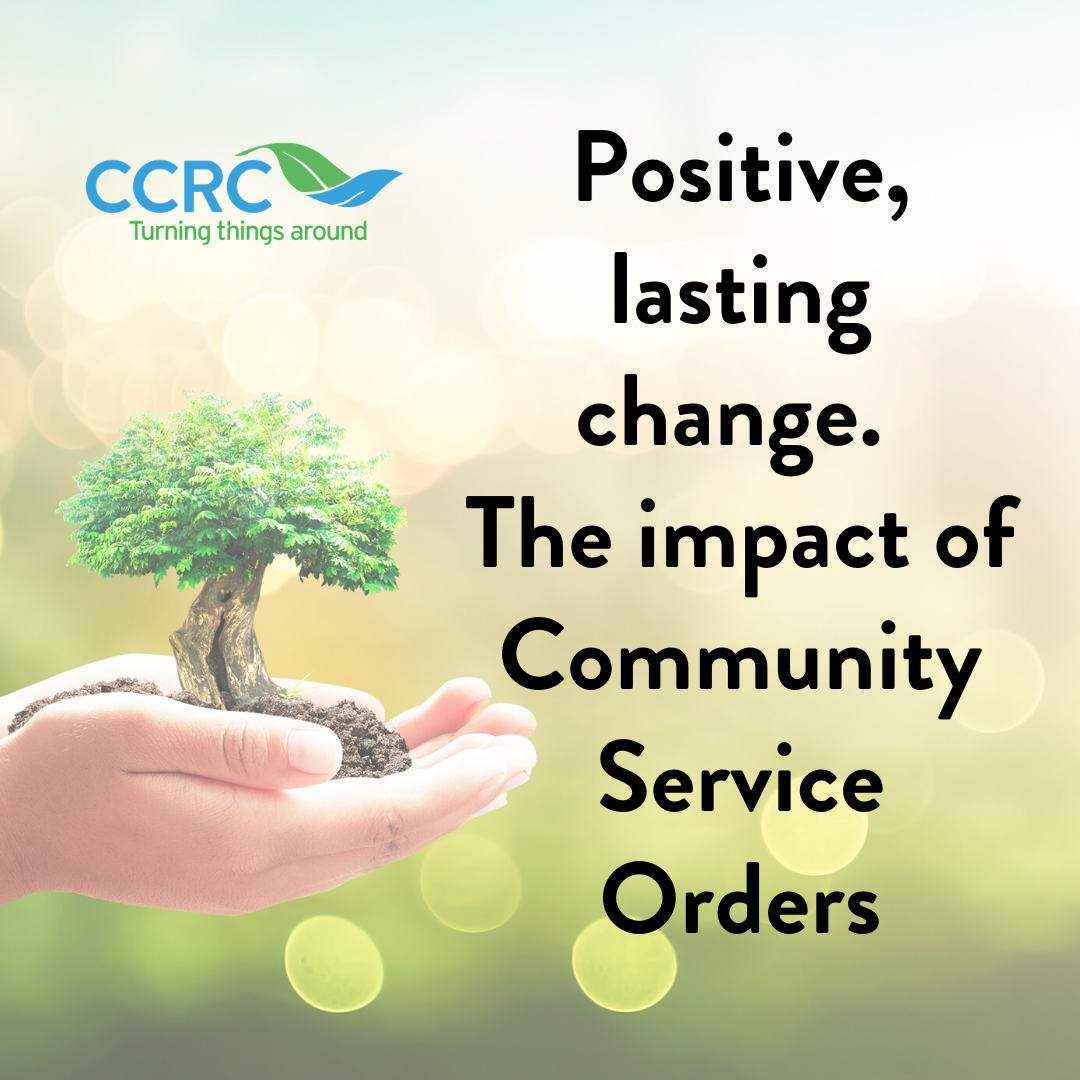
Community Service is a term we hear related to probation orders when someone is sentenced for an offence. What we don’t often hear about is what happens after that and how profound an experience it can be for someone who has been involved with the justice system.
Amanda Sterling is the Community Service Orders Program Coordinator at CCRC. Her role is to help clients connect and maintain a relationship with organizations where they can complete their community service and fulfill their obligation to the courts. “I’m not there to judge, I simply conduct a thorough assessment to ensure that I find a placement that not only satisfies the requirements of their order, but also is appropriate for the client and when possible, helps them meet their personal goals and interests. This does involve a discussion of the offence.”, she says of her first meeting with a client. “Many people are quite open about the nature of their offence while others are averse to the idea. Often clients want to tell their story to someone who will listen without judgement”.

Knowing what type of offence the person has committed helps Amanda find placements. Her aim is to find out what the person’s interests and goals are, and to find an organization and placement that aligns with those interests and goals. She then facilitates the connection with the organization, and the person begins their placement.
A community service placement can be a fresh start with meaningful work, the ultimate goal of a community service order. Not a ‘punishment’, but a way to build a life in a community. Giving someone consistency and the means to build networks, CSO clients are less likely to reoffend when they have community integration and inclusion.
“Often those given community service orders report experiences of marginalization, living in poverty, and some have struggled with mental health and addiction relating to trauma.” Amanda says of the factors many people describe that led to their offence. Those factors don’t disappear once a person is in the justice system, but having a successful community service placement can help someone build their self-esteem and sense of agency. They can start to take some control back and be connected with supports in the community that can help address those underlying factors.
“When someone is struggling with housing precarity or food insecurity – how do they succeed at meeting the requirements of orders when all of their energy is used for simply surviving?” This is the question that Amanda and others working in the justice field often ask themselves.
“I have had people tell me their community service helped them to get a job and forge lasting connections. I’ve also had people who continue on at their placement after their hours have been completed, and those who said that it turned out to be a very positive experience for them. Likewise, placements frequently provide feedback about how placements have benefited their organization. The key to this mutually beneficial relationship is ensuring a good fit for both the client and the placement organization,” Amanda says of the feedback she receives.
Amanda typically meets with clients three times, but checks in with them via phone or email often. “My interest is in community development, and that those with lived experience are the experts of their own domain through social learning. They understand best what challenges they face and should necessarily be included in developing solutions to those challenges. In this role I see social justice, I see people evolving as we all do and I see their progress as they move through their placement”. She says of her experience coordinating the program.
The biggest challenge for Amanda is finding organizations willing to host Community Service Order clients. “There exists a great deal of stigma for justice involved individuals. Some organizations have turned away from providing placements for CSO clients since the introduction of mandatory high school placement because they view students as a preferable option. This is sometimes misguided given the wealth of knowledge and experience that CSO clients can contribute. I believe there is room for balance. When organizations agree to take on a Community Service Order client, they are not only helping the person, but they’re also helping the community. Giving that person the opportunity to give back, but also to develop the self-confidence and feeling of inclusion they need to move forward.”
Amanda can be reached at the George St office of CCRC, and by email at asterling@ccrc-ptbo.com.
